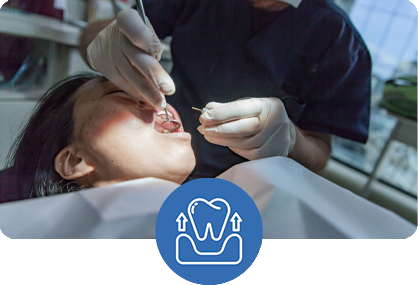Maxillofacial surgery presents unique challenges for special needs patients and their healthcare providers. This comprehensive guide outlines the essential steps for successful surgical preparation, procedure execution, and recovery, focusing on creating a supportive environment that addresses each patient’s individual needs.
Key Takeaways
| Aspect | Consideration |
|---|---|
| Pre-surgical Assessment | Thorough evaluation of cognitive abilities, sensory sensitivities, and communication needs |
| Anesthesia and Sedation | Customized approaches tailored to individual patient requirements |
| Surgical Techniques | Adaptations to minimize sensory overload and accommodate patient tolerance |
| Post-operative Care | Specialized pain management and wound care strategies |
| Multidisciplinary Approach | Collaboration among various specialists for comprehensive care |
| Communication | Use of visual aids, social stories, and assistive devices to enhance understanding |
| Anxiety Management | Creation of sensory-friendly environments and use of desensitization techniques |
| Long-term Follow-up | Consistent monitoring and adaptation of oral hygiene practices |
Understanding Maxillofacial Surgery for Special Needs Patients
Maxillofacial surgery encompasses procedures involving the face, jaw, mouth, and neck regions. For special needs patients, these interventions may address facial trauma, developmental conditions, or dental complications. Success depends on meticulous preparation and individualized care plans that consider each patient’s specific requirements, including cognitive processing, sensory integration, and physical capabilities.
Essential Considerations for Special Needs Patients
Critical Factors in Oral Surgery Planning
- Comprehensive pre-surgical evaluation to establish baseline health status and identify potential challenges
- Development of individualized treatment protocols that accommodate specific patient needs
- Implementation of effective communication strategies adapted to patient capabilities
- Enhanced post-operative care protocols with clear guidance for caregivers
- Integration of multiple healthcare disciplines for optimal outcomes
- Detailed assessment of cognitive function and learning style
- Careful consideration of sensory processing requirements
- Complete medical history review and current health status evaluation
- Strategic preparation for psychological support throughout treatment
- Implementation of evidence-based care protocols tailored to individual needs
Pre-Surgical Assessment and Planning
Pre-surgical evaluation for special needs patients requires comprehensive medical assessment, psychological preparation, and establishment of effective communication channels. Advanced sedation techniques may facilitate thorough examination while maintaining patient comfort. The evaluation encompasses medical history review, current medication assessment, and previous surgical experiences. Healthcare providers must also evaluate post-operative care capabilities and available support systems.
Collaboration with caregivers and support teams is fundamental to successful treatment planning. These individuals provide valuable insights into patient routines, preferences, and potential triggers for anxiety or distress. Their input helps create comprehensive care plans that address both medical requirements and individual comfort needs. This collaborative approach ensures all aspects of patient care are considered, from initial consultation through post-operative recovery.
Advanced Anesthesia and Sedation Protocols
Anesthesia and sedation protocols for special needs patients require careful customization to ensure both safety and comfort during maxillofacial procedures. This involves precise medication selection and delivery methods based on individual patient requirements. Anesthesia teams must carefully consider underlying medical conditions, potential drug interactions, and respiratory management strategies.
Management of sensory sensitivities plays a crucial role in anesthesia planning. Patients may exhibit heightened reactions to tactile stimulation, environmental sounds, or specific odors, potentially affecting their response to pre-anesthetic preparation. Experienced sedation specialists implement strategies such as gradual mask introduction, scented mask options, or noise-reduction techniques to optimize patient comfort during the induction process.
Specialized Surgical Techniques
Maxillofacial procedures for special needs patients often require modifications to standard surgical protocols to accommodate individual requirements. This may involve specialized instrumentation or modified techniques designed to minimize sensory overload and reduce procedural complications. Surgical teams maintain flexibility in their approach, adapting methods based on patient response and tolerance throughout the procedure.
Successful outcomes often depend on balancing optimal surgical results with patient comfort and anxiety management. This may necessitate modified surgical timing or staged interventions to ensure patient tolerance. Advanced imaging techniques during surgery can enhance precision while reducing operative duration, minimizing overall patient stress.
Enhanced Post-Operative Care Protocols
Recovery management for special needs patients requires individualized post-operative care strategies. Pain management protocols must account for varying communication abilities and pain perception patterns. Care instructions require clear, accessible formatting for both patients and caregivers, often incorporating visual guides and step-by-step demonstrations to ensure proper implementation.
Integrated Multidisciplinary Care
Maxillofacial Surgeon
Directs surgical intervention and oversees comprehensive treatment planning
Anesthesiologist
Develops and implements specialized sedation protocols
Occupational Therapist
Facilitates functional adaptation and recovery
Speech Therapist
Supports communication and oral motor function rehabilitation
Enhanced Communication Strategies
Effective communication forms the cornerstone of successful treatment for special needs patients undergoing maxillofacial surgery. Visual aids, procedural demonstrations, and social narratives help establish clear understanding of the surgical process. Augmentative communication devices enable non-verbal patients to express needs and concerns throughout their treatment journey.
Anxiety and Sensory Management
Creating an optimized surgical environment helps minimize anxiety and sensory challenges for special needs patients. Environmental modifications may include adjusted lighting levels, sound management through noise-canceling technology, and the integration of familiar comfort items. Pre-operative facility orientation allows patients to become familiar with the surgical setting in a low-stress context.
Comprehensive Follow-Up Care
Long-term success requires structured follow-up care to monitor healing and maintain surgical outcomes. Regular assessment appointments may be scheduled at more frequent intervals initially, with gradual transition to routine maintenance visits. These sessions should accommodate patient comfort levels and may be structured as shorter, more frequent interactions rather than extended appointments.
Conclusion: Optimizing Outcomes Through Specialized Care
Successful maxillofacial surgery for special needs patients requires a sophisticated approach that extends beyond standard surgical protocols. Through comprehensive pre-surgical assessment, specialized care techniques, and coordinated multi-disciplinary support, healthcare providers can achieve optimal outcomes for this unique patient population.
Through strategic planning, multi-disciplinary collaboration, and ongoing support systems, special needs patients can achieve successful surgical outcomes and enhanced quality of life. This comprehensive approach addresses both immediate surgical requirements and long-term oral health maintenance, promoting sustained improvement in function and aesthetics following maxillofacial procedures.

 718-979-2121
718-979-2121











